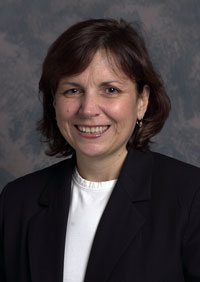
Anne Marie Albano, Ph.D.
Associate Professor, Clinical Psychology in Psychiatry
Director, Columbia University Clinic for Anxiety and Related Disorders,
Columbia University Medical Center
Social anxiety disorder (SAD), or social phobia, can have a crippling effect on young people. Children who avoid raising their hand or speaking up in school can become tweens who withdraw from extracurricular activities, and then teens who experience isolation and depression. In fact, children with social anxiety disorder are more likely than their peers without SAD to develop depression by age 15 and substance abuse by age 16 or 17.
As they head toward adulthood, young people with social anxiety disorder tend to choose paths that require less involvement with other people, and so cut short a lot of opportunities. Bright, intelligent young people who have yearnings to be lawyers or doctors, but cannot interact with other people, may choose a profession or work that is very solitary; or they might not enter the work force at all.






Connect With Us